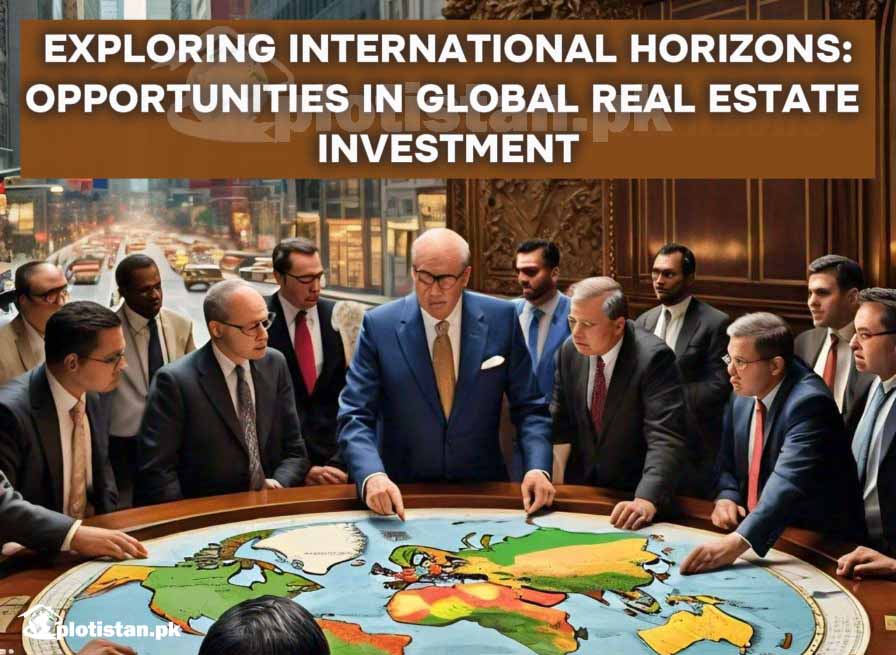
The world of real estate is full of exciting opportunities for investors who want to expand their portfolios beyond their local markets. Whether it’s residential properties in growing cities or commercial real estate in established financial districts, investing in international properties comes with its own set of benefits and challenges. Let’s take a closer look at the dynamics of global real estate investments, including key markets, strategies, and considerations for investors looking to make the most of international properties.
Understanding Global Real Estate Markets
When it comes to global real estate, investors need to navigate through a variety of economic, political, and regulatory environments. Each country has its own rules when it comes to foreign property ownership, taxes, and profits. Some countries offer incentives like residency permits or tax breaks to attract foreign investors, while others have strict laws that make ownership and profit-taking more complicated.
Emerging Markets vs. Developed Economies
Investing in emerging markets like Brazil, India, and parts of Southeast Asia can offer high growth potential at a lower cost compared to developed economies. However, these markets also come with higher risks due to political instability and economic volatility. On the other hand, developed markets like the US, UK, and Germany offer more stability and stronger regulations, but at a higher cost and potentially lower returns.
Commercial Real Estate Opportunities
Commercial properties, such as office spaces and retail locations, play a crucial role in global real estate investment. Investing in cities like New York, London, Tokyo, and Singapore can provide stable rental yields and long-term lease agreements, as these cities attract multinational corporations looking for prime office space.
Residential Real Estate Dynamics
Investing in residential properties in popular cities like Dubai, Monaco, and major European capitals can offer great returns, especially in areas experiencing rapid urbanization and infrastructure development. The rise of remote work has also increased interest in properties in less urbanized areas, offering both lifestyle benefits and investment potential.
Risk Management in Global Investments
Managing risks is crucial when investing in international real estate. Factors like currency risks, legal changes, economic downturns, and geopolitical tensions should all be considered. Diversifying investments across different regions and types of real estate can help mitigate some of these risks.
Leveraging Technology and Local Expertise
Using technology to access real-time data and analytics is becoming more important in global real estate. Platforms that provide market analysis and investment trends can be very helpful. Partnering with local experts, like real estate agents and financial consultants, can also provide valuable insights tailored to specific markets.
Ethical and Sustainable Investing
Investors are increasingly considering sustainability in their real estate investments as awareness of environmental issues grows. Properties with green certifications and those that contribute to sustainable development goals are not only more attractive ethically, but they may also offer long-term cost savings and better marketability.
FAQs on Opportunities in Global Real Estate Investment
What are the benefits of investing in global real estate?
Investing globally diversifies your portfolio, reduces risk, potentially increases returns, and can provide protection against inflation and currency fluctuations.
How can I identify promising global real estate markets?
Promising markets typically have economic growth, political stability, increasing population, and urban development. Research and insights from real estate experts are key.
What are the risks associated with global real estate investment?
Risks include currency fluctuations, political instability, legal differences, economic downturns, and challenges in managing property from abroad. Due diligence and understanding local markets can help mitigate these risks.
How does one manage international real estate investments effectively?
Hiring local property managers and using technology for communication and monitoring can help manage investments effectively.
What should I know about the tax implications of buying property abroad?
Tax implications vary by country, so consulting with a tax advisor specializing in international real estate is recommended.
Are there specific types of properties that are better for international investment?
The choice of property depends on your goals, whether it’s commercial properties in global cities or residential properties in tourist areas.
How can I finance an overseas property purchase?
Options include leveraging home equity, obtaining a mortgage from a local bank, or using international lenders specializing in overseas properties.
Is investing in real estate globally a good strategy for retirement planning?
Global real estate can be a solid part of retirement planning, providing steady income and potential property value appreciation when balanced with other investments.
Key Factors to Consider
When choosing a country for real estate investment, there are several important factors to keep in mind. These include economic stability, legal protections for foreign investors, real estate market trends, infrastructure development, accessibility, and the general real estate regulatory environment. It’s also important to consider cultural factors and your personal comfort with the country.
How Exchange Rates Come into Play
Exchange rates can have a big impact on global real estate investments. Fluctuations in exchange rates can affect the cost of purchasing a property and the returns on investment. If the currency in the investment country strengthens, it can increase returns when converting rental income or sales proceeds back to your home currency. On the other hand, a weakening currency can have the opposite effect.
Conclusion
Global real estate investment can be a great way to enhance and diversify your investment portfolio. However, it’s important to do your research, understand local laws and regulations, and plan strategically. With the right approach, global real estate can offer substantial returns and exposure to different cultures and economies. Whether you’re looking to expand your investment horizons or take on new challenges, the international property market has something to offer every investor.



